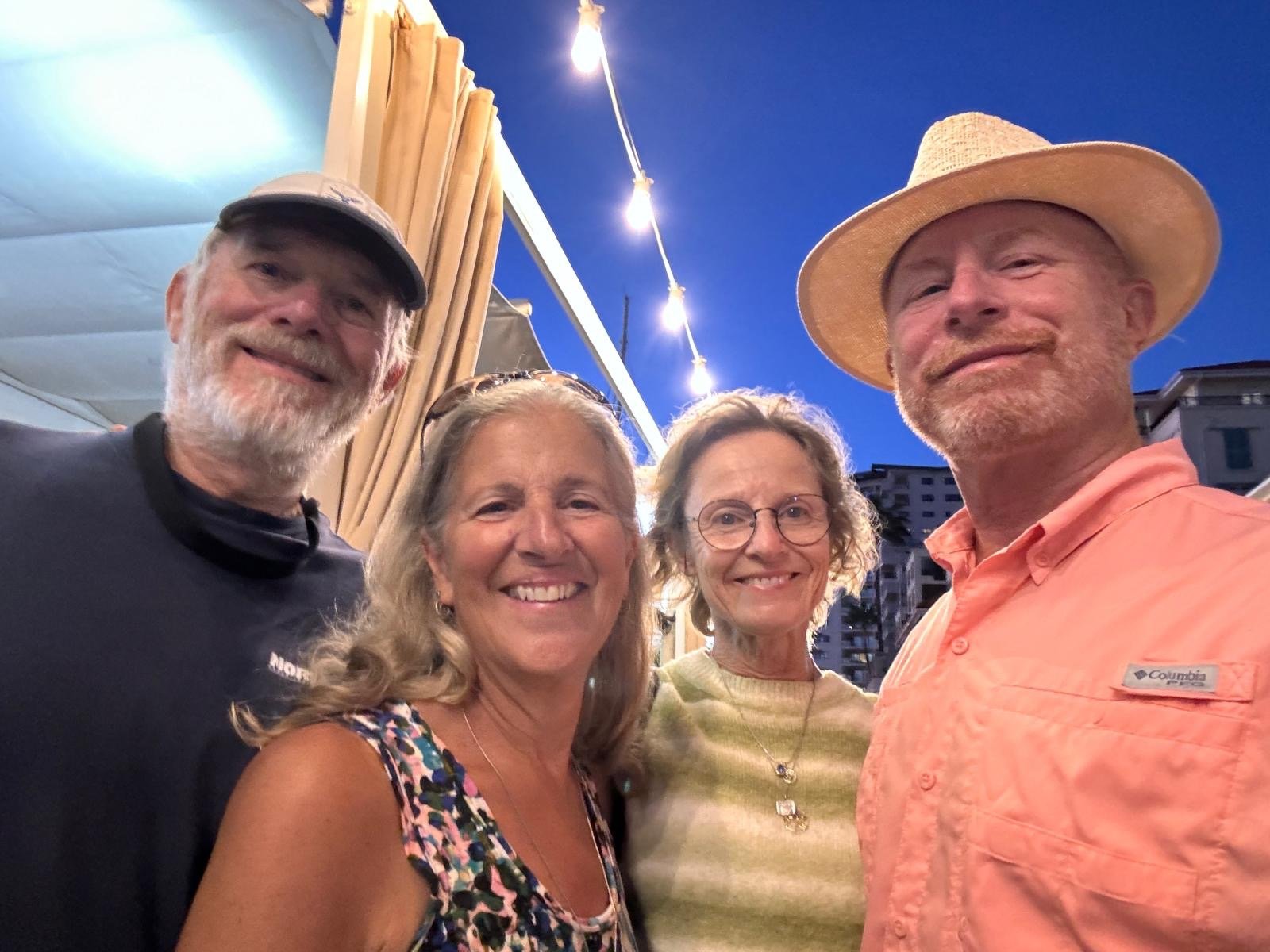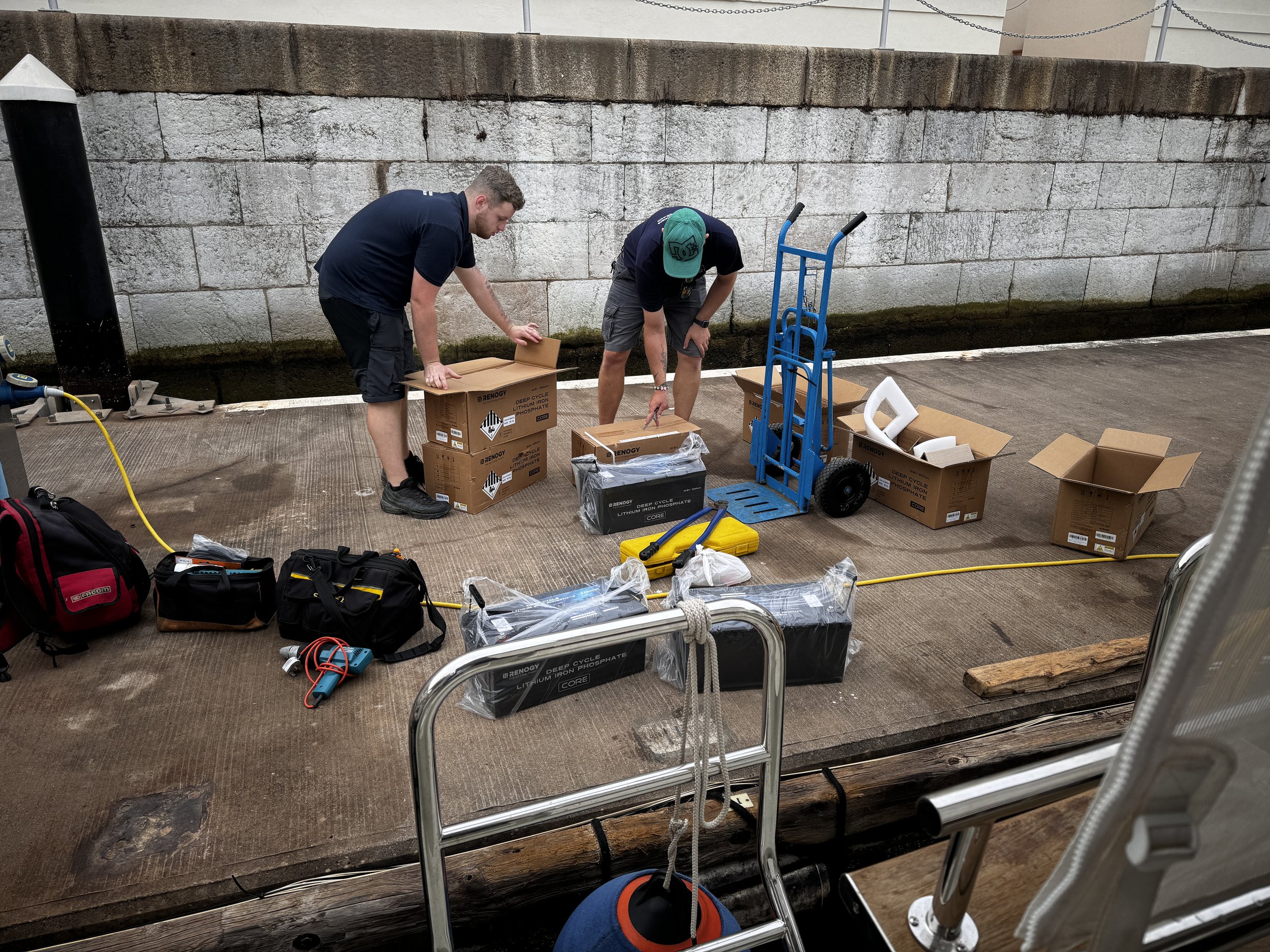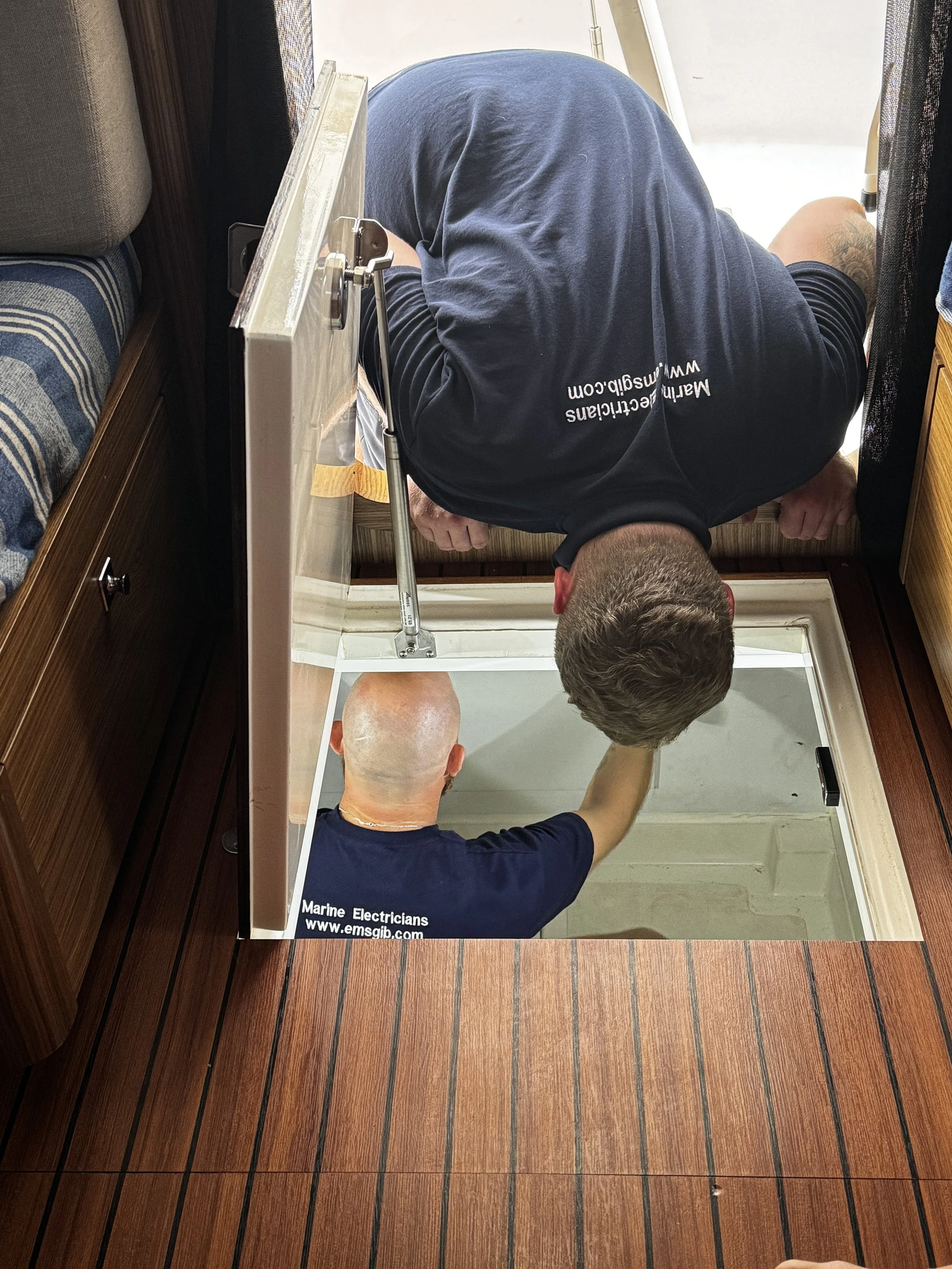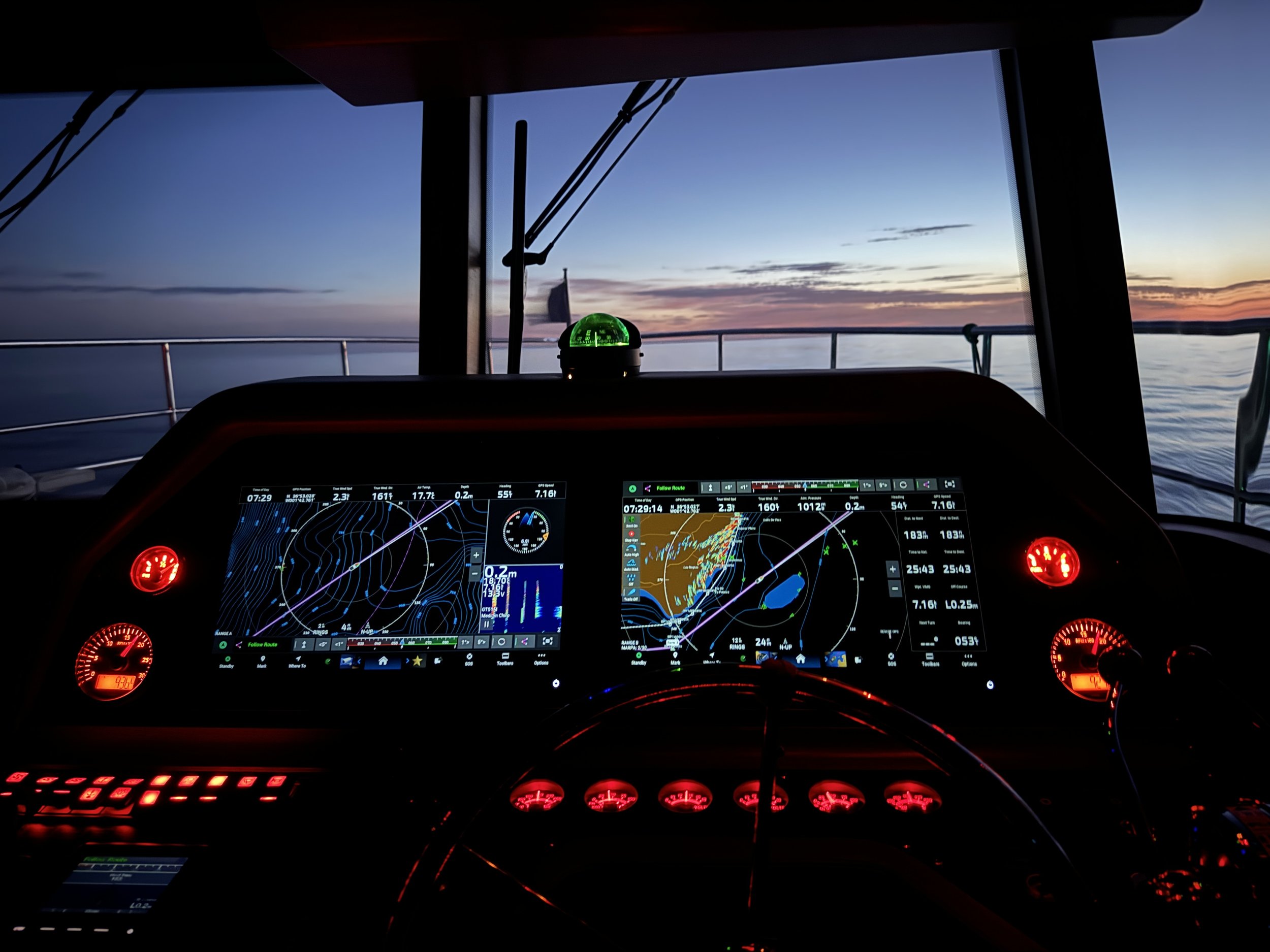From Trials to Tranquility
We cruised back to Gibraltar from Spain - a 20 minute 2.5 miles transit! We had been unable to stay on anchor the past several months because our AGM batteries would not hold a charge overnight. We assumed we had compromised them on one of our trips home when we left the boat for three months. Despite having been super conscientious about shutting everything down, except the solar panels to trickle charge in our absence, our batteries were dead. We assumed what we’d done would be adequate to keep the batteries from completely discharging. Unfortunately this was not the case and when we returned in late July - the batteries were totally flat.
Even after thorough investigation we’ve no idea what we did wrong - our original AGM batteries should have lasted 3-5 years. Clearly we needed to replace them, a huge unexpected expense, but if we’re doing it we might as well change to lithium. These would last longer, they would charge more efficiently at a higher rate and would provide more power when needed. They would also eliminate our concern of somehow unknowingly destroying them again since lithium can be discharged deeper than AGM batteries, often up to 100% without damage.
Tom had done extensive research and had been hatching a plan with EMS, a reputable group of marine electricians in Gibraltar. We decided EMS was well positioned to work on the electrical system we have aboard Meraki. We would have them remove the old batteries, install the new batteries, add external regulation to the alternators, isolate our remaining AGM generator start battery, add a battery monitoring system and make all the components talk to each other. As usual, the batteries took longer than expected to arrive having gotten hung up at customs clearing into Gibraltar. Nothing to do but catch up on boat chores, explore more of Gibraltar and hang out with new friends.













Eventually the batteries arrived and the project commenced. We had requested a few small additional improvements to our electrical system as well: a battery monitor so that we could easily read the level of charge from the salon, and to swap one of the burners on our cooktop to run through the inverter so that we could cook on anchor without running the generator. The servicemen came and went for five days; the owner of the company, the electrical engineer, the alternator specialist, two apprentices, and the computer programmer. They squirmed their way into just about every recess of the boat - we emptied the lazarette of all the rope, chairs, wetsuits, snorkel gear, bicycles, etc. - piling it up on the side decks, we emptied the commissary of all the tools and spare parts - stacking them in the bunkroom, we dismantled the couch heaping the cushions into our master cabin, removed the drawer and the oven from the galley wall - balancing them on the guest bed, while the workers drilled holes in the walls, fished wires and crawled all over Meraki.







The work was finally completed. In the process the electricians found overall an excellent installation. However, they also discovered several of our main batteries and bus bars had not been installed correctly, some of the connections were not tight or secure. The cables were stiff and discolored and showed the results of prolonged overheating. It turns out we likely had been running on half capacity since day one, never actually achieving a completely full charge. Furthermore, the overheating could have caused sparks, fire or worse. We are so thankful we discovered this problem when we did and are relieved we were not at fault for frying our batteries.
We readied the boat to go cruising again after 16 days in the marina. We said goodbye to our new friends, leaving Gibraltar behind for good. We checked back into Spain and continued up the coast for just a few hours for our first night on anchor in months.






We slept super soundly and awoke in the wee hours the next day ready to set off on a very long transit. We were heading to the Balearic Islands - it would take over two days to make landfall. We had completed our passage planning, developed a route taking advantage of currents, checked and rechecked the weather, and felt confident it was a good time to set off. A couple of hours later the sun rose on a perfectly flat sea with nary a breath of wind (perfect for us - a nightmare for sailers). Just as the sky brightened we noticed a pod of dolphins arrive. Definitely a positive omen! We enjoyed their company for several minutes before they swam off and we returned to the cabin. About an hour later another pod arrived - we raced to the bow again to watch them play. And it happened again! And again! And again! The water was like glass all day long and I think we scampered to the bow to watch the dolphin antics at least 13 times before the sun finally dropped below the horizon. ‘Dolphin Day’ might just be THE best day yet at sea!









We set up a 4 hour watch schedule during the nights, starting after dinner. The passage passed smoothly, the sea state getting a bit rougher two days later as the islands came into view. For once the predicted weather was actually what we experienced, and we dropped the anchor at 10am, 53 hours later, in a beautiful little bay on Formentera Island.





Formentera is the smallest of the Balearic Islands but just as popular. It was Sunday morning and dozens of day boats came and went throughout the day bringing swimmers, jet skis, barking dogs and shouting children. We slept through it all waking only to swim, eat and shower. The next day the wind direction shifted so we hopped over to Ibiza Island and found a completely deserted bay with crystal clear, emerald water and ringed by steep red cliffs. We did laundry, swam, cleaned the boat - which was caked with salt, swam, ate good food, swam some more and took the dingy for a sunset spin around the bay. I LOVE being on anchor! I could stay here for weeks. But there is more fun to come - tomorrow we head to Mallorca!



Note: photo captions will not appear if viewing on a cell phone.


